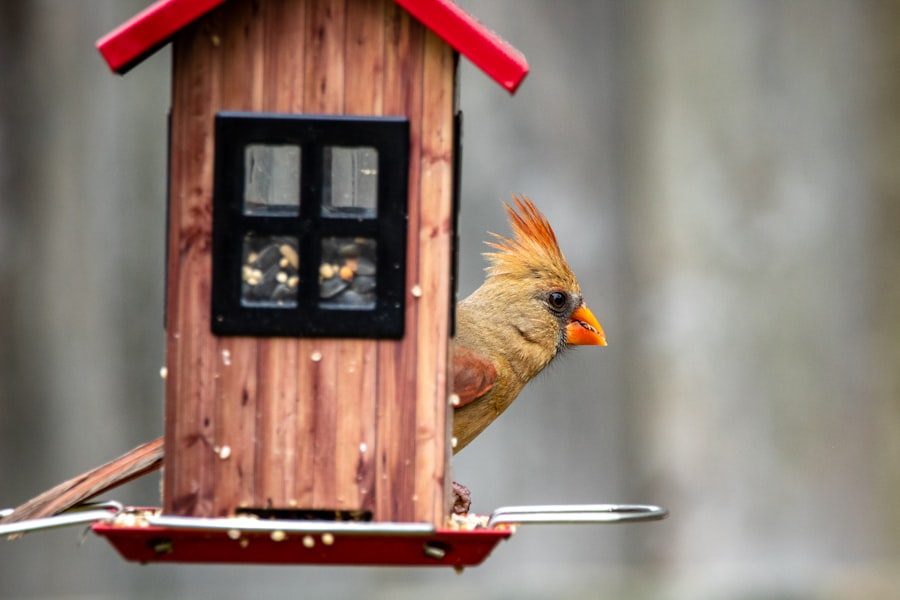Chickens have specific nutritional requirements that must be met for optimal health and productivity. A balanced diet for chickens includes protein, carbohydrates, fats, vitamins, and minerals. Protein is crucial for muscle development and egg production, while carbohydrates provide energy for daily activities.
Fats are necessary for healthy skin and feathers, as well as energy storage. Vitamins and minerals support overall health and immune function. Providing a feed that meets these nutritional requirements is essential for maintaining a healthy flock.
In addition to macronutrients and micronutrients, chickens require access to grit and calcium. Grit aids in digestion by helping chickens grind food in their gizzards, while calcium is vital for strong eggshells. Nutritional needs vary depending on the chicken’s life stage.
Chicks require higher protein content to support rapid growth, while laying hens need a calcium-rich diet for egg production. Understanding and meeting these specific nutritional needs ensures the health and productivity of chickens throughout their lives.
Table of Contents
Key Takeaways
- Chickens require a balanced diet of protein, carbohydrates, fats, vitamins, and minerals for optimal health and egg production.
- Choose a feed that is appropriate for the age and purpose of your chickens, whether they are layers, broilers, or free-range birds.
- Establish a consistent feeding schedule to ensure that chickens have access to feed at the same times each day.
- Provide clean, fresh water at all times, and consider using automatic waterers to ensure a constant supply.
- Supplement chickens’ diets with treats like fruits, vegetables, and insects, and allow foraging opportunities to encourage natural behaviors.
Choosing the right feed for your chickens
Factors to Consider
When selecting the right feed for your chickens, several factors come into play. The type of feed you choose depends on the age and purpose of your flock, as well as any specific dietary requirements they may have.
Nutritional Content
For example, if you’re raising chicks, you’ll need to provide them with a starter feed that’s high in protein to support their rapid growth. As they mature, you can transition them to a grower feed with slightly lower protein content. For laying hens, a layer feed with added calcium is essential to support egg production and shell quality.
Quality and Form of Feed
In addition to considering the nutritional content of the feed, it’s crucial to choose a high-quality feed that’s free from contaminants and mold. Look for feeds specifically formulated for chickens and free from antibiotics and other additives. Organic feeds are also available for those who prefer natural, chemical-free nutrition. Finally, consider the form of the feed – pellets, crumbles, or mash – and choose one that’s suitable for your flock’s feeding habits.
By carefully selecting the right feed for your chickens, you can ensure they receive the nutrition they need to thrive.
Establishing a feeding schedule

Establishing a feeding schedule for your chickens is essential for maintaining their health and productivity. Chickens thrive on routine, so providing them with consistent mealtimes will help regulate their eating habits and ensure they receive the nutrition they need. Depending on the age and purpose of your flock, you may need to adjust the frequency and quantity of their feedings.
For example, chicks may require multiple small meals throughout the day, while mature hens may only need to be fed once or twice daily. It’s important to monitor your flock’s feeding habits and adjust their schedule as needed. For example, during hot weather, chickens may eat less during the day and more in the evening when it’s cooler.
By observing their behavior and appetite, you can tailor their feeding schedule to meet their needs. Additionally, providing access to feeders that can hold enough food for at least a day will ensure that your chickens have constant access to nutrition. By establishing a feeding schedule that meets the specific needs of your flock, you can promote their health and well-being.
Providing access to fresh water
In addition to providing a balanced diet, access to fresh water is essential for the health and well-being of your chickens. Water plays a crucial role in digestion, temperature regulation, and overall health. Chickens can consume a surprising amount of water each day, especially during hot weather or when laying eggs.
It’s important to provide clean, fresh water at all times to ensure that your flock remains hydrated and healthy. When providing water for your chickens, consider the type of waterer you use. There are various options available, including gravity-fed or automatic waterers, as well as traditional water fountains or open dishes.
Choose a waterer that is suitable for the size and age of your flock, and ensure that it is kept clean and free from contaminants. During extreme weather conditions, such as freezing temperatures in winter or excessive heat in summer, take extra precautions to prevent water from freezing or becoming too warm. By providing access to fresh water at all times, you can support the overall health and well-being of your flock.
Supplementing with treats and foraging opportunities
While a balanced feed provides the essential nutrition for your chickens, supplementing their diet with treats and foraging opportunities can provide mental stimulation and additional nutrients. Treats such as fruits, vegetables, mealworms, or scratch grains can be offered in moderation as a special reward or to encourage positive behavior. These treats should not replace their regular feed but can be used as a supplement to provide variety in their diet.
Foraging opportunities are also important for chickens’ natural behavior and mental well-being. Allowing your flock access to an outdoor area where they can scratch and peck at the ground for insects and plants can provide them with additional nutrients and keep them entertained. If free-ranging is not an option, consider providing a designated area with straw or shavings where they can scratch and search for treats hidden within.
By supplementing your chickens’ diet with treats and providing foraging opportunities, you can support their overall health and happiness.
Proper storage of chicken feed

Choosing the Right Storage Container
When storing feed, it’s essential to keep it in a cool, dry place that is free from pests and moisture. Airtight containers or metal bins with tight-fitting lids are ideal for storing feed and preventing access from rodents or insects.
Additional Storage Tips
Additionally, consider storing feed off the ground to prevent moisture from seeping in. It’s also important to monitor the expiration date of the feed and use it within a reasonable timeframe to ensure its freshness and nutritional value. Avoid purchasing more feed than your flock can consume within a few weeks to prevent spoilage or loss of nutrients.
Regular Inspection and Maintenance
Regularly inspect stored feed for signs of mold or pests, and discard any contaminated or spoiled feed immediately. By properly storing chicken feed, you can ensure that it remains fresh and free from contaminants.
Monitoring and adjusting feeding habits as needed
Monitoring your flock’s feeding habits is essential for ensuring their health and well-being. Keep an eye on their appetite, behavior, and overall condition to identify any changes that may indicate a problem with their diet. For example, sudden weight loss or reduced egg production could be signs of nutritional deficiencies or health issues that need to be addressed.
Additionally, be prepared to adjust your feeding habits as needed based on seasonal changes or fluctuations in your flock’s needs. For example, during molting season or extreme weather conditions, you may need to adjust the protein content of their feed or provide additional supplements to support their health. By staying attentive to your flock’s feeding habits and making adjustments as needed, you can ensure that they receive the nutrition they need to thrive.
In conclusion, understanding the nutritional needs of chickens is crucial for maintaining the health and productivity of your flock. By choosing the right feed, establishing a feeding schedule, providing access to fresh water, supplementing with treats and foraging opportunities, properly storing chicken feed, and monitoring and adjusting feeding habits as needed, you can ensure that your chickens receive the nutrition they need to thrive. With proper care and attention to their dietary needs, your flock will remain healthy, happy, and productive for years to come.
If you’re looking for tips on how to keep your chickens well-fed, you might also be interested in this article on large chicken coop ideas. A spacious and well-designed coop can help ensure that your chickens have plenty of space to move around and access to food.
FAQs
What do chickens eat?
Chickens eat a variety of foods including grains, seeds, insects, fruits, and vegetables. A balanced diet for chickens typically includes a mix of commercial chicken feed, scratch grains, and kitchen scraps.
How often should chickens be fed?
Chickens should have access to food throughout the day. It is recommended to feed them once in the morning and once in the evening, ensuring they have enough food to last them through the night.
What type of feed should I give my chickens?
Commercial chicken feed is the most common and convenient option for providing chickens with the necessary nutrients. There are different types of feed available, including starter feed for young chicks, grower feed for adolescent chickens, and layer feed for adult hens.
Can chickens eat kitchen scraps?
Yes, chickens can eat a variety of kitchen scraps including vegetable peels, fruit scraps, and bread. However, it is important to avoid feeding them foods that are toxic to chickens such as avocado, chocolate, and raw beans.
How can I ensure my chickens have access to food when I am not home?
Consider using a gravity-fed feeder or an automatic feeder to ensure that your chickens have access to food even when you are not home. These feeders can hold a large amount of feed and dispense it as needed.
Meet Walter, the feathered-friend fanatic of Florida! Nestled in the sunshine state, Walter struts through life with his feathered companions, clucking his way to happiness. With a coop that’s fancier than a five-star hotel, he’s the Don Juan of the chicken world. When he’s not teaching his hens to do the cha-cha, you’ll find him in a heated debate with his prized rooster, Sir Clucks-a-Lot. Walter’s poultry passion is no yolk; he’s the sunny-side-up guy you never knew you needed in your flock of friends!







